"While dictators rage and statesmen talk, all Europe dances — to The Lambeth Walk."
Tuesday, 26 May 2009
The Real Racists in the Netherlands
A Dutch author has written a book, commissioned by the Netherlands Police Academy, which examines the problems of Moroccan criminality in many major Dutch cities.
Paul Andersson Toussaint has concluded that far from being victims of racism and excluded from society, many Moroccans are themselves racist and prone to excluding the Dutch and other nationalities from their social circles and their neighbourhoods:
"Conservatively estimated, I myself am physically and verbally threatened, intimidated or in some other way rudely or (extremely) aggressively treated twice every week by immigrant youths and men. The large majority of this group is of Moroccan origin. There is virtually never a justification for the intemperate behaviour of these boys. Their behaviour has without any doubt a partly racist origin. The fact that I am an indigenous Dutch person is sufficient. Thousands of these hate-heads are walking around Amsterdam," writes Andersson Toussaint in an opinion piece in NRC Handelsblad.
It is remarkable that the critical article has appeared in NRC Handelsblad. This newspaper is generally considered one of the most politically correct in the Netherlands. Nonetheless, Andersson Toussaint has been able to stress in the paper that Moroccans are criminals "en masse" and that Moroccan crime is not as is often suggested, a phenomenon among a small group.
"My research and many ramblings in Amsterdam districts show that it is a matter of a much broader phenomenon. There is no ethnic community where the us-and-them mentality is as strongly developed as actually among the Moroccans. A large group of Moroccans is living in Amsterdam who (...) are hostile to the Dutch, Dutch society and the West. Moroccans who do their best, work hard or study hard (...) are often stamped by this group (...) as traitors."
Not just the Dutch but also Turks and all other ethnic groups, especially the Surinamese, have to deal daily with "the Moroccan aggression, intimidation, slanging-matches and routine spitting at women," according to the writer. "But the perception that is still constantly proclaimed by a large group of politicians, policy-makers, civil servants, professionals, journalists and media personalities in chat shows on TV is simply turned around."
Andersson Toussaint concludes that Moroccans are in their culture used to being severely punished for crime, and that they lose respect for the authorities because this does not happen in the Netherlands. Many fathers also encourage their sons into drug-dealing as a career. "The denial of these facts has a paralysing effect and blocks the solution to this multicultural tragedy."
Andersson Toussaint will shortly publish a book ('State Secretary or Repeat Offender; the narrow path of the Moroccan'). It was commissioned by the Police and Science Foundation of the police academy. A debate on the book will be held in the Rode Hoed centre in Amsterdam on 11 June.
It is nice to see realism in the European media sometimes. The myth that only white Europeans can be guilty of hate and racism should be exposed for the nonsense it is as loudly and as often as possible.
Moroccan criminality is endemic in many Dutch cities. Just this month it was announced that 92 arrests had been made in the Diamond Straat area of Amsterdam in the past 12 months.
The vast majority of the offenders were of Moroccan background. Their offences included drug dealing, possessing illegal weapons, street robbery, burglary, assault and kidnapping, as well as insulting and assaulting the police and other public officials.
Ninety two might not seem an awful lot, but I get the impression that in the Netherlands you have to do an awful lot to get the police to take you seriously as a dangerous criminal.
Gouda is another place which has suffered heavily under the yoke of a Moroccan crimewave.
September 2008 saw bus drivers refuse to follow routes which went through the Oosterwei area of Gouda:
After a series of incidents Connexxion [the government-subsidized public bus company] announced it would not drive though Oosterwei [a neighborhood in Gouda] for a while.The measure follows complaints from bus drivers. They report that on their route through the neighborhood they are being spit on, threatened and robbed by mainly Moroccan youth who systematically kick against the buses as well. “The cup is full after a long series of incidents,” confirms spokeswoman Anja Pieroen of Connexxion.Since yesterday the drivers have been diverting around the most notorious areas in the problem neighborhood Oosterwei.
The very limit was reached with the robbing of a 37-year-old driver in Gouda, who was threatened [and cut] with a knife to make him hand over the change in his cash box to a robber. Connexxion says they want to send a signal to the police and the municipality to indicate that it no longer can go on like this.
A month later, a church and school were set on fire. The fire brigade were stoned, and youths managed to hijack a fire engine and take it for a joy-ride.
Two weeks ago there were civil disturbances after the police tried to arrest a youth. On another occasion the police tried to arrest two immigrant thieves, but were pelted with stones for their trouble.
A day later, youths ran amok in a supermarket, smashing bottles and trashing shelves. When the police arrived and went inside, the windows of their car were mysteriously smashed.
The police officers on the scene blamed a 'random act of vandalism' and made no arrests. Public outrage was so great that they later found six Moroccan suspects and arrested them. However, just three days previously, a police spokesman had said that throwing stones at the police and insulting them was 'nothing special:
Chris van Egmond, spokesman of the Holland Center Police Region, says that throwing stones at policemen is nothing special. It happens everywhere. He added that you cannot arrest someone for throwing stones, therefore the youngsters who threw stones at a police car in Gouda were only fined 90 Euros for hooliganism.
With attitudes like this, it is almost hard to blame the 'youths' for trying their luck. For years, the Dutch government and establishment have tried to blame the native Dutch for these problems; they're not tolerant enough, the youths are bored, or alienated, or excluded from civil society, they're victims of racism, their teachers don't have high enough expectations for them, etc etc.
It has been clear to many people for years now that the experiment of multiculturalism has failed. Oddly enough, the solution to problems which stem from diversity is not more diversity. We need more people like Geert Wilders and Paul Andersson Toussaint to stand up and say so before it is too late.
Paul Andersson Toussaint has concluded that far from being victims of racism and excluded from society, many Moroccans are themselves racist and prone to excluding the Dutch and other nationalities from their social circles and their neighbourhoods:
"Conservatively estimated, I myself am physically and verbally threatened, intimidated or in some other way rudely or (extremely) aggressively treated twice every week by immigrant youths and men. The large majority of this group is of Moroccan origin. There is virtually never a justification for the intemperate behaviour of these boys. Their behaviour has without any doubt a partly racist origin. The fact that I am an indigenous Dutch person is sufficient. Thousands of these hate-heads are walking around Amsterdam," writes Andersson Toussaint in an opinion piece in NRC Handelsblad.
It is remarkable that the critical article has appeared in NRC Handelsblad. This newspaper is generally considered one of the most politically correct in the Netherlands. Nonetheless, Andersson Toussaint has been able to stress in the paper that Moroccans are criminals "en masse" and that Moroccan crime is not as is often suggested, a phenomenon among a small group.
"My research and many ramblings in Amsterdam districts show that it is a matter of a much broader phenomenon. There is no ethnic community where the us-and-them mentality is as strongly developed as actually among the Moroccans. A large group of Moroccans is living in Amsterdam who (...) are hostile to the Dutch, Dutch society and the West. Moroccans who do their best, work hard or study hard (...) are often stamped by this group (...) as traitors."
Not just the Dutch but also Turks and all other ethnic groups, especially the Surinamese, have to deal daily with "the Moroccan aggression, intimidation, slanging-matches and routine spitting at women," according to the writer. "But the perception that is still constantly proclaimed by a large group of politicians, policy-makers, civil servants, professionals, journalists and media personalities in chat shows on TV is simply turned around."
Andersson Toussaint concludes that Moroccans are in their culture used to being severely punished for crime, and that they lose respect for the authorities because this does not happen in the Netherlands. Many fathers also encourage their sons into drug-dealing as a career. "The denial of these facts has a paralysing effect and blocks the solution to this multicultural tragedy."
Andersson Toussaint will shortly publish a book ('State Secretary or Repeat Offender; the narrow path of the Moroccan'). It was commissioned by the Police and Science Foundation of the police academy. A debate on the book will be held in the Rode Hoed centre in Amsterdam on 11 June.
It is nice to see realism in the European media sometimes. The myth that only white Europeans can be guilty of hate and racism should be exposed for the nonsense it is as loudly and as often as possible.
Moroccan criminality is endemic in many Dutch cities. Just this month it was announced that 92 arrests had been made in the Diamond Straat area of Amsterdam in the past 12 months.
The vast majority of the offenders were of Moroccan background. Their offences included drug dealing, possessing illegal weapons, street robbery, burglary, assault and kidnapping, as well as insulting and assaulting the police and other public officials.
Ninety two might not seem an awful lot, but I get the impression that in the Netherlands you have to do an awful lot to get the police to take you seriously as a dangerous criminal.
Gouda is another place which has suffered heavily under the yoke of a Moroccan crimewave.
September 2008 saw bus drivers refuse to follow routes which went through the Oosterwei area of Gouda:
After a series of incidents Connexxion [the government-subsidized public bus company] announced it would not drive though Oosterwei [a neighborhood in Gouda] for a while.The measure follows complaints from bus drivers. They report that on their route through the neighborhood they are being spit on, threatened and robbed by mainly Moroccan youth who systematically kick against the buses as well. “The cup is full after a long series of incidents,” confirms spokeswoman Anja Pieroen of Connexxion.Since yesterday the drivers have been diverting around the most notorious areas in the problem neighborhood Oosterwei.
The very limit was reached with the robbing of a 37-year-old driver in Gouda, who was threatened [and cut] with a knife to make him hand over the change in his cash box to a robber. Connexxion says they want to send a signal to the police and the municipality to indicate that it no longer can go on like this.
A month later, a church and school were set on fire. The fire brigade were stoned, and youths managed to hijack a fire engine and take it for a joy-ride.
Two weeks ago there were civil disturbances after the police tried to arrest a youth. On another occasion the police tried to arrest two immigrant thieves, but were pelted with stones for their trouble.
A day later, youths ran amok in a supermarket, smashing bottles and trashing shelves. When the police arrived and went inside, the windows of their car were mysteriously smashed.
The police officers on the scene blamed a 'random act of vandalism' and made no arrests. Public outrage was so great that they later found six Moroccan suspects and arrested them. However, just three days previously, a police spokesman had said that throwing stones at the police and insulting them was 'nothing special:
Chris van Egmond, spokesman of the Holland Center Police Region, says that throwing stones at policemen is nothing special. It happens everywhere. He added that you cannot arrest someone for throwing stones, therefore the youngsters who threw stones at a police car in Gouda were only fined 90 Euros for hooliganism.
With attitudes like this, it is almost hard to blame the 'youths' for trying their luck. For years, the Dutch government and establishment have tried to blame the native Dutch for these problems; they're not tolerant enough, the youths are bored, or alienated, or excluded from civil society, they're victims of racism, their teachers don't have high enough expectations for them, etc etc.
It has been clear to many people for years now that the experiment of multiculturalism has failed. Oddly enough, the solution to problems which stem from diversity is not more diversity. We need more people like Geert Wilders and Paul Andersson Toussaint to stand up and say so before it is too late.
Labels:
Crime,
Immigration,
Islam,
Netherlands,
Race,
Reverse Racism
Subscribe to:
Post Comments (Atom)
.jpg)






















































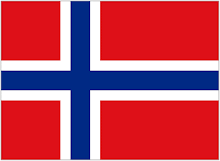
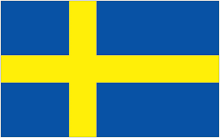






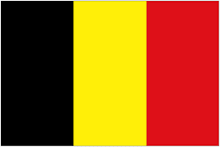

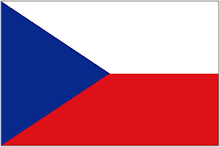











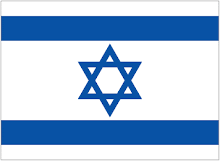




2 comments:
This brave fellow will probably be sharing a cell with Geert Wilders very soon.
It is culture that matters, and when you bring muzlim barbarians into a peaceful, civilized country like Holland, you get precisely what you would expect. Why is anybody surprised at all?
Not only has the "multicultural experiment" failed, it only ever took place in stable, democratic Western societies to begin with - which says all you need to know about the imported cultures that "failed". They never were capable of multiculturalism in the first place: if they had been, they wouldn't have needed to come to the West to begin with. QED.
Post a Comment